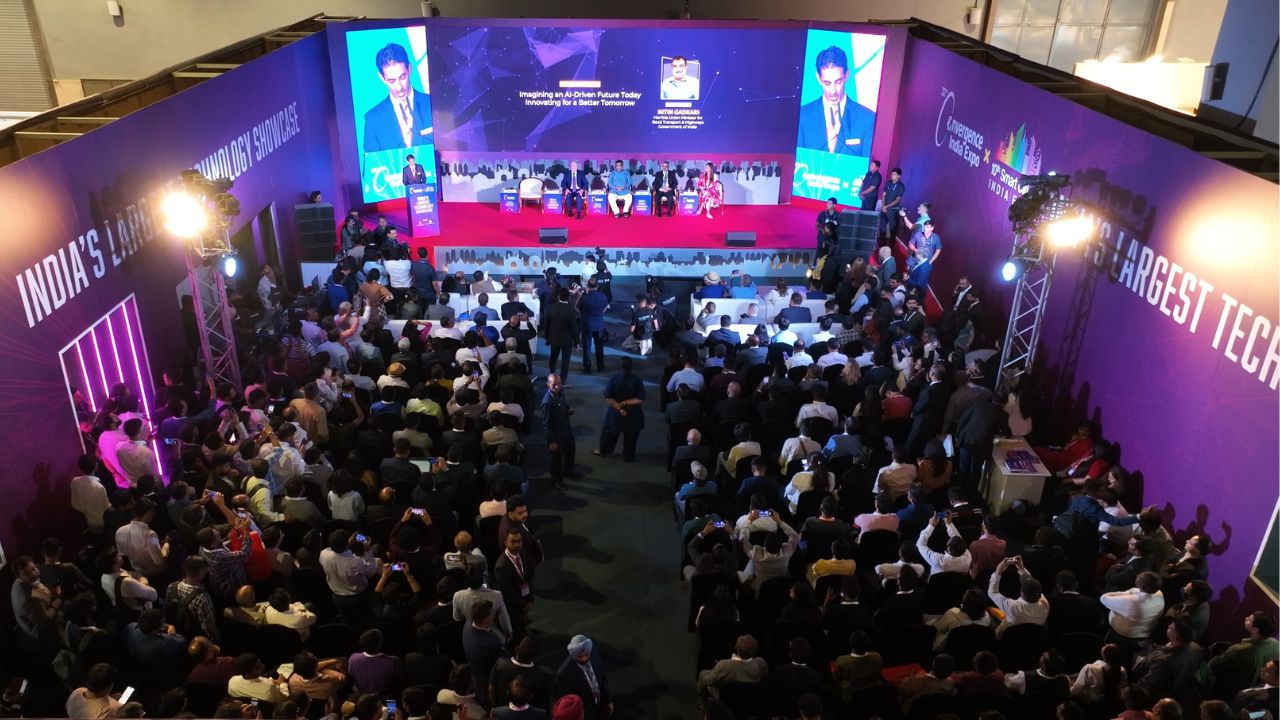Nitin Gadkari, Minister of Road Transport and Highways, highlighted how startups and young innovators are leading India’s EV transformation with groundbreaking technology at the 32nd edition of Convergence India Expo 2025, held from 19-21 March at Bharat Mandapam, Delhi. He stated, “I think that our startups, our young talented engineers, are doing an excellent job in developing new technology. We already have around 400 manufacturers in the small cities, and they are making electric scooters and electric auto-rickshaws. So, I feel that for smart mobility, there is a huge potential in the domestic market and the export market.”
Growing Manufacturers in Small Cities: The Backbone of India's EV Revolution
The rise of EV manufacturing hubs in smaller cities is playing a crucial role in India’s transition towards sustainable mobility. Many startups are setting up production units in Tier 2 and Tier 3 cities, leveraging lower operational costs and local talent. Companies like Ola Electric, Ather Energy, Bounce, and Yulu are pioneering the development of electric two-wheelers, while electric auto-rickshaw manufacturers such as Mahindra Electric, Euler Motors, and Piaggio Vehicles are expanding their footprint.
These small-scale manufacturers contribute significantly to employment and economic growth while addressing urban congestion and pollution. With affordable and efficient electric two-wheelers and three-wheelers, the sector is not just catering to domestic demand but also positioning itself for global exports.
Government Initiatives Fueling the Smart Mobility Ecosystem
Recognizing the potential of smart mobility, the Indian government has launched several initiatives to support startups in the EV sector. Programs like the Faster Adoption and Manufacturing of Hybrid and Electric Vehicles (FAME) scheme provide incentives for electric vehicle buyers and subsidies for manufacturers. The Production-Linked Incentive (PLI) scheme encourages local manufacturing of EV components, including batteries and charging infrastructure.
Additionally, state governments are rolling out policies to promote EV adoption, including tax exemptions, subsidies, and incentives for setting up charging stations. The growing focus on battery-swapping technology, which reduces downtime for commercial EVs, is further boosting the startup ecosystem.
Challenges in Smart Mobility: Addressing Infrastructure and Technology Gaps
Despite the rapid growth, the smart mobility sector faces several challenges:
• Charging Infrastructure: A well-developed EV charging network is crucial for mass adoption. While metropolitan cities are seeing an increase in charging stations, rural and semi-urban areas still lack the necessary infrastructure.
• Battery Technology: The dependency on lithium-ion batteries and their high cost remains a challenge. Research into solid-state batteries and alternative materials like sodium-ion could provide cost-effective and sustainable solutions.
• Consumer Awareness and Adoption: Although interest in EVs is growing, concerns about range anxiety, battery life, and resale value hinder faster adoption. Educating consumers and improving technology will help bridge this gap.
• Global Competition: Competing with established global players like Tesla, BYD, and NIO requires continuous innovation, policy support, and investment in R&D.
India’s Vision for 2030: Becoming a Global EV Hub
The Indian government has set an ambitious target of achieving 30 per cent EV penetration by 2030, with a strong focus on electrifying public and shared transportation. The growing presence of startups and manufacturers in small cities ensures that India not only meets domestic demand but also strengthens its position in the global market.
With increased investment, advancements in battery technology, and improved charging infrastructure, India is well on its way to becoming a major hub for smart mobility solutions. As Nitin Gadkari emphasized, the potential in both the domestic and export markets is enormous, and with continued innovation and policy support, Indian startups can lead the global EV revolution.
India’s smart mobility landscape is witnessing an unprecedented transformation, driven by startups, young engineers, and small-scale manufacturers. While challenges persist, government initiatives and industry collaborations are paving the way for a sustainable, electric future. As we move toward 2030, the vision of India as a global EV hub is becoming a tangible reality, fueled by innovation, investment, and a commitment to smart mobility solutions.
32nd Convergence India & Smart Mobility India Expo:
Held at Bharat Mandapam, New Delhi, the Convergence India Expo Convergence India hosted 40+ conference sessions, bringing together industry leaders, innovators, and policymakers to discuss emerging technologies and market trends. Ministry representatives highlighted the event’s role in shaping India’s tech-driven future.
Co-located with Convergence India, the Smart Mobility India Expo Smart Mobility India showcased key trends in EVs, autonomous vehicles, Mobility-as-a-Service, and smart infrastructure. Solutions spanned passenger mobility, parking automation, traffic management, IoT, cloud connectivity, last-mile solutions, alternate fuels, and integrated transport systems.
With insightful discussions and high-value business deals, both expos reaffirmed their status as premier platforms for networking, innovation, and industry growth.




